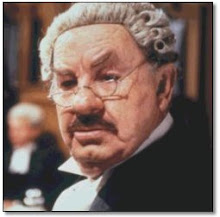The DelGiorno Lawsuit
Attorneys for former
In Oklahoma, slander is defined as a false and unprivileged publication, other than libel, which among other things charges any person with crime, or with having been indicted, convicted or punished for crime or tends directly to injure him in respect to his office, profession, trade or business, either by imputing to him general disqualification in those respects which the office or other occupation peculiarly requires, or by imputing something with reference to his office, profession, trade or business that has a natural tendency to lessen its profit which, by natural consequences, causes actual damage.
So, what did DelGiorno say that caused his attorneys to throw in the towel, order public retractions to aired and probably give the other side a whole lot of money? The following quote by plaintiff Bill Christiansen in the Tulsa World is instructive:
He continued: “I’m a big boy. He can say I shouldn’t be re-elected or that I’m a bad city councilor, but when he starts bringing my business into it and my business ethics, repeatedly telling lies, that was hard to take.”
Christiansen, who operates an aviation business, said that on one tape of the radio program, DelGiorno said he “looked forward to the day he ruined me, and it was his job to say it over and over again until people believe it.”
Christiansen said that “there is no question in my mind that is exactly what he had in mind.”
Christiansen said he was one of many people about whom DelGiorno made disparaging and untrue statements.
Peters said that what separated the remarks about Christiansen from the others is that DelGiorno said Christiansen committed a crime.
“He crossed the line and used the word ‘felony,’ used the words ‘federal crime.’ He said it dozens of times and added that the FAA agrees,” Peters said.
Kent Faith, a competitor of Christiansen’s at
If we parse Christiansen’s statement we find all of the elements of defamation. DelGiorno made public accusations of wrongdoing and unfitness that would tend to injure Christiansen in his business. An official investigation that would have verified the truth of the DelGiorno’s statements did not result in charges and thus officially cleared Christiansen. Consequently, DelGiorno’s statements were considered false for the purpose of the defamation action.
This case could have been much more complicated. DelGiorno on the one hand, a purely public figure, was almost impossible to defame. The United States Supreme Court has extended first amendment protection to patent falsehoods about public figures. Christiansen however, as an elected official, should have also been considered a public figure as well, but obviously was being granted the more favorable status of a limited public figure concerning his private business.
The lesson here is clear. Be careful when you set out to ruin another man’s business or career. It can turn into a costly adventure. Further, don’t rely on the two year statutory of limitations to save you from old defamatory statements.


0 Comments:
Post a Comment
<< Home